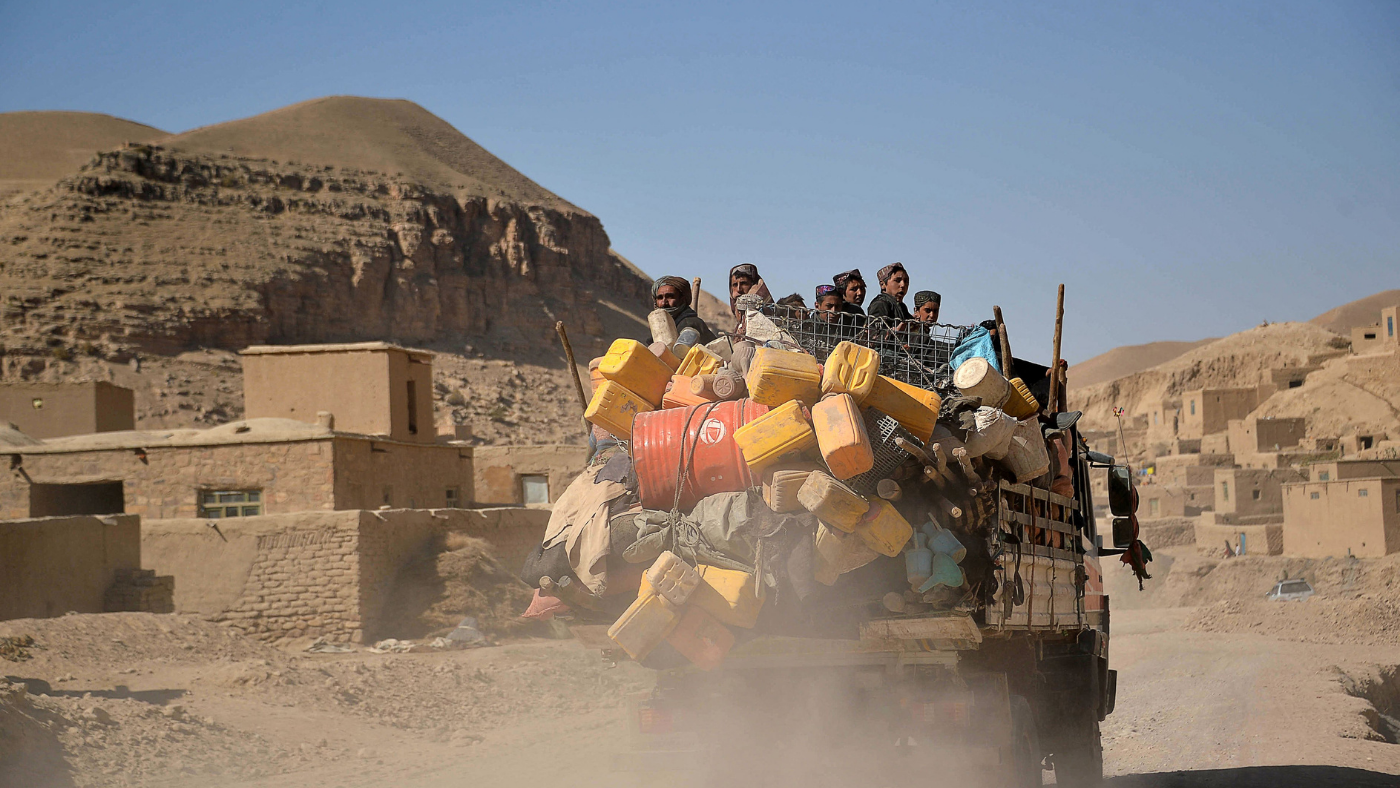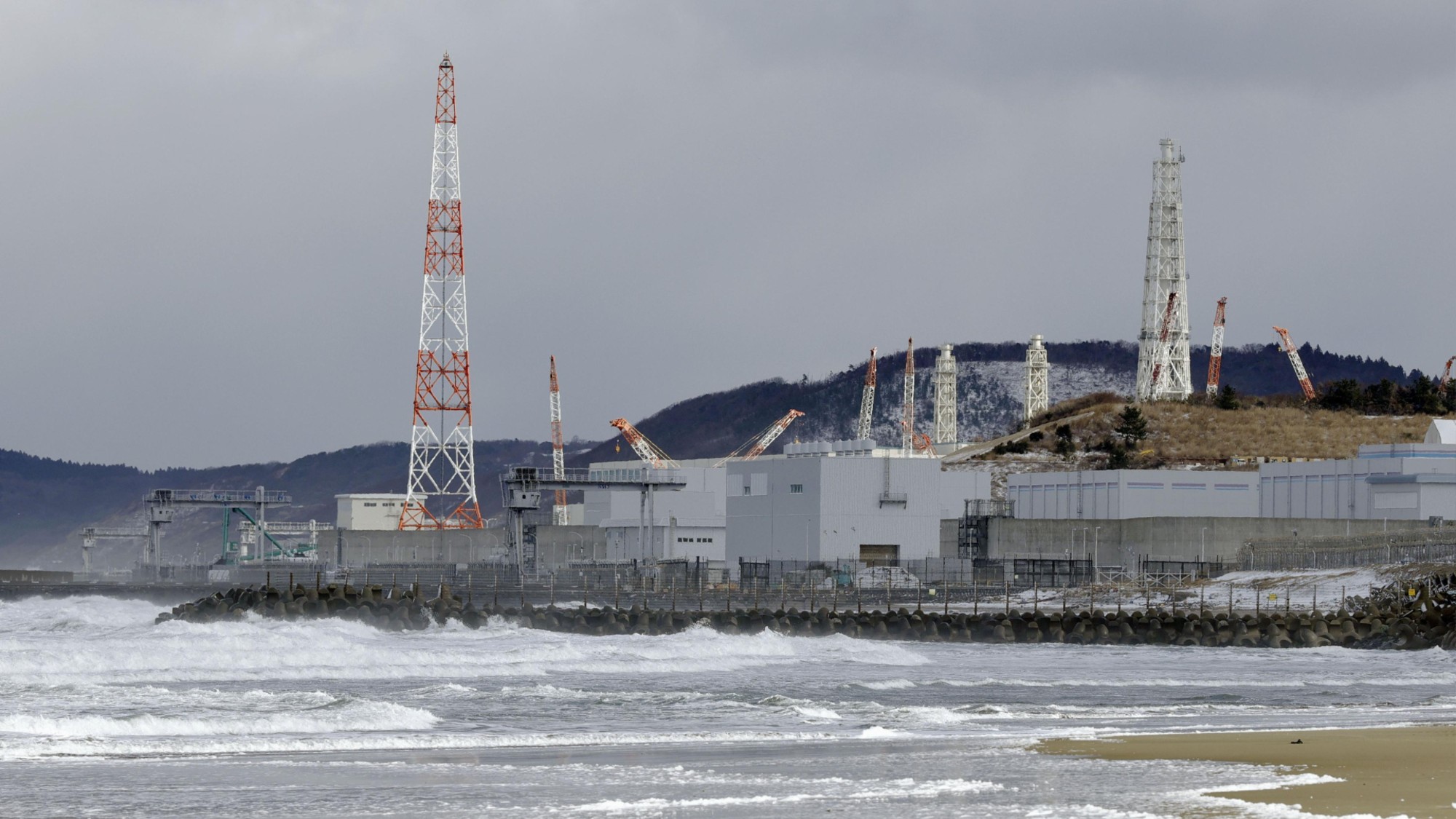Will climate change lead to war?
Environmental disruption can ‘load the dice’ and increase risk of conflict, experts warn

A free daily email with the biggest news stories of the day – and the best features from TheWeek.com
You are now subscribed
Your newsletter sign-up was successful
Cop26 comes to a close tomorrow, bringing to an end many weeks of warnings for the planet on the repercussions of climate change.
The diplomatic meetings held in Glasgow over the past 11 days have been touted as some of the most important in human history. Inside and outside of the SEC Centre there have been calls for climate justice for the communities on the frontlines of extreme environmental harm.
Others have also warned of the impact on stability for nations around the world.
The Week
Escape your echo chamber. Get the facts behind the news, plus analysis from multiple perspectives.

Sign up for The Week's Free Newsletters
From our morning news briefing to a weekly Good News Newsletter, get the best of The Week delivered directly to your inbox.
From our morning news briefing to a weekly Good News Newsletter, get the best of The Week delivered directly to your inbox.
Ahead of the summit, the UN’s top climate official said a failure to tackle greenhouse gas emissions could lead to migration crises and food shortages bringing conflict and chaos, reported The Observer.
Patricia Espinosa said a “catastrophic” climate scenario would “provoke very serious problems” for populations across the world. “It would mean less food, so probably a crisis in food security. It would leave a lot more people vulnerable to terrible situations, terrorist groups and violent groups. It would mean a lot of sources of instability,” she said.
Espinosa’s warnings, described as “unusually strong” by The Observer, point to the severity of what is at stake for human populations’ safety as temperatures rise.
A 2015 research paper by American academics at Stanford and California universities found that a temperature increase of 1C results in an 11.3% rise in conflict, such as riots and civil war, between different groups. At this level of warming, a 2.4% increase is also seen in the level of interpersonal crimes, such as abuse or even murder.
A free daily email with the biggest news stories of the day – and the best features from TheWeek.com
Despite “the lack of a single, simple causal pathway linking climate and conflict”, the researchers concluded that to ignore the “causal relationship” between the two would be “a dangerously misguided interpretation of the inevitable evidence”.
However, multiple studies have since concluded that no single trigger can be identified as the root cause of climate conflict because the former does “not directly” result in the latter, explained the International Growth Centre’s head of communications Emilie Yam earlier this year.
Changes in climate are rather “threat multipliers”, meaning sudden or severe changes in temperature or rainfall, for example, can exacerbate the vulnerability of certain communities or countries to further dangers. As a result, extreme weather events can “intensify existing conflict patterns” that threaten livelihoods, health and personal safety, in some cases leading to violent clashes over access to resources or services.
Climate change is perhaps best thought of as “loading the dice”, said The Washington Post, “making conflict more likely to occur in subtle ways across a host of different country contexts”.
Communities in conflict zones are also “less able to cope” with climate crises, making them among the most vulnerable to the worsening environmental situation, a report published by the Red Cross found last year. Efforts to adapt areas to better manage climate risks also “tend to be limited in times of war”, with security priorities elsewhere.
A “first of its kind” report published by the US National Intelligence Council last month painted a “dire picture” of the growing security risks “as countries compete for dwindling water and food supplies”, said NBC News. It named Afghanistan, Myanmar, India and Pakistan among the countries most at risk from climate change “if trends continue”.
“We assess that climate change will increasingly exacerbate risks to US national security interests as the physical impacts increase and geopolitical tensions mount about how to respond to the challenge,” it said.
The report predicted that the intensifying physical effects of climate change would “exacerbate geopolitical flashpoints”, particularly after 2030, the year pinpointed as a deadline to curb the worst effects of warming temperatures. At the same time, international tensions are likely to grow “as countries increasingly argue about how to accelerate the reductions in net greenhouse gas emissions that will be needed to meet the Paris Agreement goals”, it said.
If an agreement between all 197 “parties” (196 countries and the EU) is reached in Glasgow this week, it could clarify how severely these risks and threats are being taken. But with the difficult discussions ongoing, it could be that international tensions, as well as temperatures, continue to rise before the next Cop conference.
Julia O'Driscoll is the engagement editor. She covers UK and world news, as well as writing lifestyle and travel features. She regularly appears on “The Week Unwrapped” podcast, and hosted The Week's short-form documentary podcast, “The Overview”. Julia was previously the content and social media editor at sustainability consultancy Eco-Age, where she interviewed prominent voices in sustainable fashion and climate movements. She has a master's in liberal arts from Bristol University, and spent a year studying at Charles University in Prague.
-
 What to know before filing your own taxes for the first time
What to know before filing your own taxes for the first timethe explainer Tackle this financial milestone with confidence
-
 The biggest box office flops of the 21st century
The biggest box office flops of the 21st centuryin depth Unnecessary remakes and turgid, expensive CGI-fests highlight this list of these most notorious box-office losers
-
 What are the best investments for beginners?
What are the best investments for beginners?The Explainer Stocks and ETFs and bonds, oh my
-
 The plan to wall off the ‘Doomsday’ glacier
The plan to wall off the ‘Doomsday’ glacierUnder the Radar Massive barrier could ‘slow the rate of ice loss’ from Thwaites Glacier, whose total collapse would have devastating consequences
-
 Can the UK take any more rain?
Can the UK take any more rain?Today’s Big Question An Atlantic jet stream is ‘stuck’ over British skies, leading to ‘biblical’ downpours and more than 40 consecutive days of rain in some areas
-
 As temperatures rise, US incomes fall
As temperatures rise, US incomes fallUnder the radar Elevated temperatures are capable of affecting the entire economy
-
 The world is entering an ‘era of water bankruptcy’
The world is entering an ‘era of water bankruptcy’The explainer Water might soon be more valuable than gold
-
 Fifteen years after Fukushima, is Japan right to restart its reactors?
Fifteen years after Fukushima, is Japan right to restart its reactors?Today’s Big Question Balancing safety fears against energy needs
-
 Climate change could lead to a reptile ‘sexpocalypse’
Climate change could lead to a reptile ‘sexpocalypse’Under the radar The gender gap has hit the animal kingdom
-
 The former largest iceberg is turning blue. It’s a bad sign.
The former largest iceberg is turning blue. It’s a bad sign.Under the radar It is quickly melting away
-
 How drones detected a deadly threat to Arctic whales
How drones detected a deadly threat to Arctic whalesUnder the radar Monitoring the sea in the air